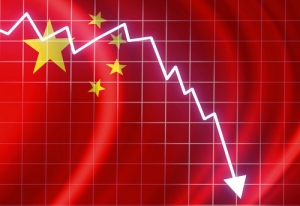2015

The Great Fall of China
David Flowers / 0 Comments /Having survived the potential for economic tragedy in Europe courtesy of Greek-style money management the investment world is now being traumatised by the all-together more calamitous drama taking place behind the Great Wall. The competence the Chinese demonstrate in the Bird’s Nest stadium has not been matched by the PBOC (People’s Bank of China). The amounts of money and the potential impact on the planet’s economy is Shakespearian Tragedy to Greece’s Nursery Rhyme.
“Billions wiped off shares” shout the headlines and we have now been introduced to the “Fear Index”. This estimates the implied volatility of the S&P 500 index over the next 30 days. Recently it was deemed to reveal a great deal of fear.
Why fear? If you’re thinking about significant damage to an economy which puts people out of their jobs and then out of their houses – fear is an understandable response.
But for us, and for our clients where the issue is wise stewardship of wealth, fear should play no part. When it comes to managing your money decision-making must be driven by your appetite for risk, your cash flow needs and your time-frame, never by a transitory and uninhibited emotion like fear. It is worth asking ourselves, of what are we afraid?
We work so hard at the beginning of a client relationship (and then at regular reviews) to ensure that we have fully understood your situation and have applied the correct investment solution. Our investment philosophy assumes that there will be market crashes, stock-market bubbles, recessions, bull markets, highs and lows. We are also absolutely convinced that it is a futile exercise to try and time the market. In other words, by the time you have decided to invest or get out, it’s too late. Or if you try and guess what is going to happen you are unlikely to win enough times for it to work.
What you can predict, with a reasonable degree of certainty, is that an investment portfolio with a high proportion of equities (shares) will be more volatile than a portfolio with a high proportion of fixed-income (bonds). And that, over the long term, the former will produce greater returns than the latter.
I have been studying the returns on the 6 portfolios we run. I’ve looked at the last month, the last year and the last 5 years. In almost every case they have produced returns in military order. Each portfolio is numbered: from lowest risk number 1 up to highest risk number 7. The risk is controlled by the amount allocated to equities versus fixed income (number 1 is all cash so we don’t include it for this exercise, number 2 has 0% in equities, number 7 has 95%).
So, for example, here are the performance rankings over those three time periods.
Performance ranking of risk-rated portfolios
| Investment Portfolios | One month ranking | 12 month ranking | 5 year ranking |
| Portfolio – 2 (lowest risk) | 1st (highest return) | 1st (highest return) | 6th (lowest return) |
| Portfolio – 3 | 2nd | 2nd | 5th |
| Portfolio – 4 | 3rd | 3rd | 4th |
| Portfolio – 5 | 4th | 4th | 3rd |
| Portfolio – 6 | 5th | 5th | 2nd |
| Portfolio – 7 (highest risk) | 6th (lowest return) | 6th (lowest return) | 1st (highest return |
This tells me many things: one of which is that trying to react to short term changes will almost certainly result in missing the long term target. In other words, if we decided to switch our investment from the high risk portfolio to the low risk portfolio because it was bottom after a month (or even a year), we would then have ended up at the bottom after five years.
Of course, some may take the Armageddon view. That this time it is different and that we should invest somewhere else entirely: bitcoins, farms, gold, antiques or works of art. I’ll comment on that in our next newsletter. Suffice to say that as a signed-up member of Saga I have seen several Armageddon market collapses – on average every 7 or 8 years – and I am more firmly convinced than ever about our investment philosophy. We will continue to design, implement and monitor investment solutions for you that will likely meet your long term investment objectives and create peace of mind regarding your investment portfolios. We won’t time the market, or take short –term views, we won’t chase returns. But we will diversify and we will expect ups and downs.
So if your circumstances are broadly the same, if your risk profile hasn’t changed, if your objectives remain in place – don’t be afraid. Your portfolio is more likely to deliver what you need than any radical alternative which may tap into an underlying fear.
David Flowers.





No comments so far!
Leave a Comment